Jiu-jitsu goes beyond being a martial art; It is an essential self-defense skill. In this article, we will explore how the principles of Brazilian jiu-jitsu can empower individuals to face challenging situations in real life, providing a solid foundation for self-defense.
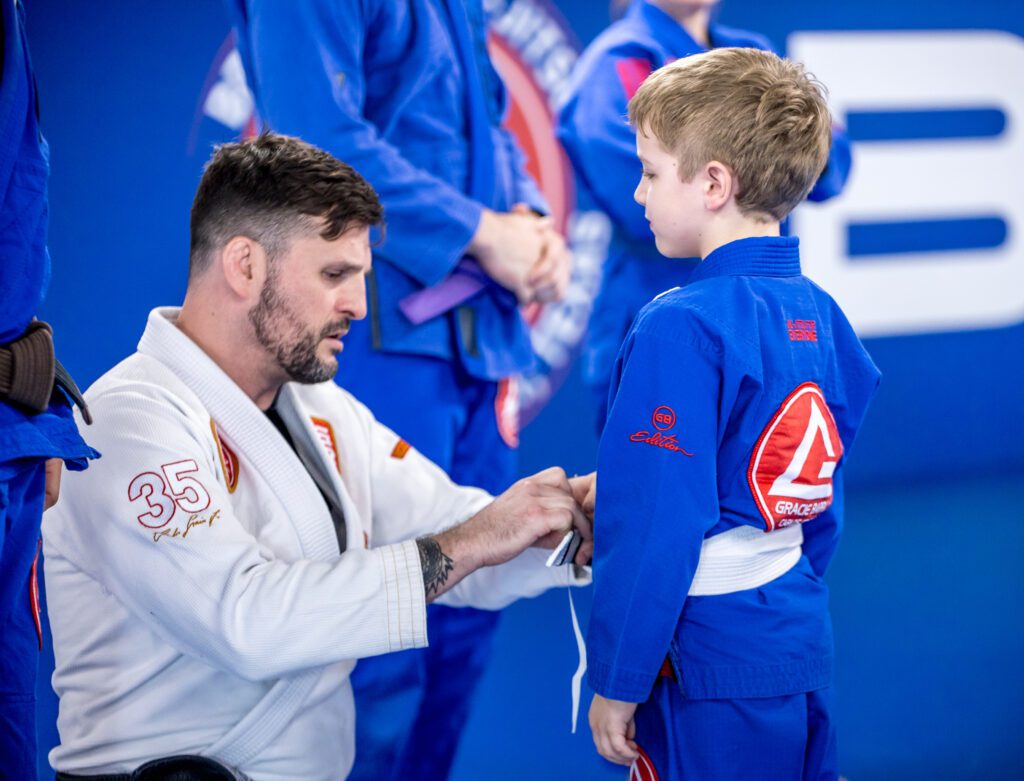
1. Knowledge of the Body and Pressure Points
Jiu-jitsu teaches you to understand your own body and your opponent’s pressure points. This anatomical awareness is crucial to self-defense, allowing practitioners to use effective techniques to neutralize threats.
2. Specific Techniques for Risk Situations
Jiu-jitsu training includes specific techniques for dealing with risky situations, such as holds and immobilizations. These practical skills are directly applicable in real-life self-defense scenarios.
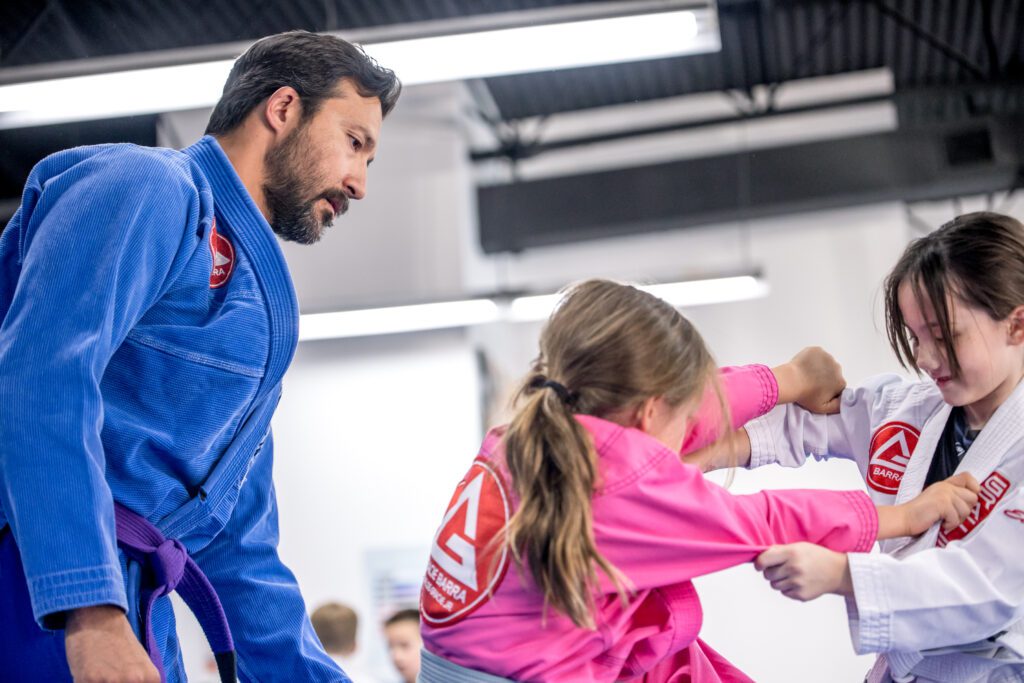
3. Control and Restraint without Excessive Use of Force
Jiu-jitsu emphasizes controlling the opponent without the need for excessive force. This approach allows practitioners to protect themselves and others efficiently by avoiding unnecessary escalations.
4. Adaptation to Different Environments
The versatility of jiu-jitsu makes it possible to adapt techniques to different environments. Whether in confined spaces or outdoors, practitioners learn to use the environment to their advantage in self-defense.
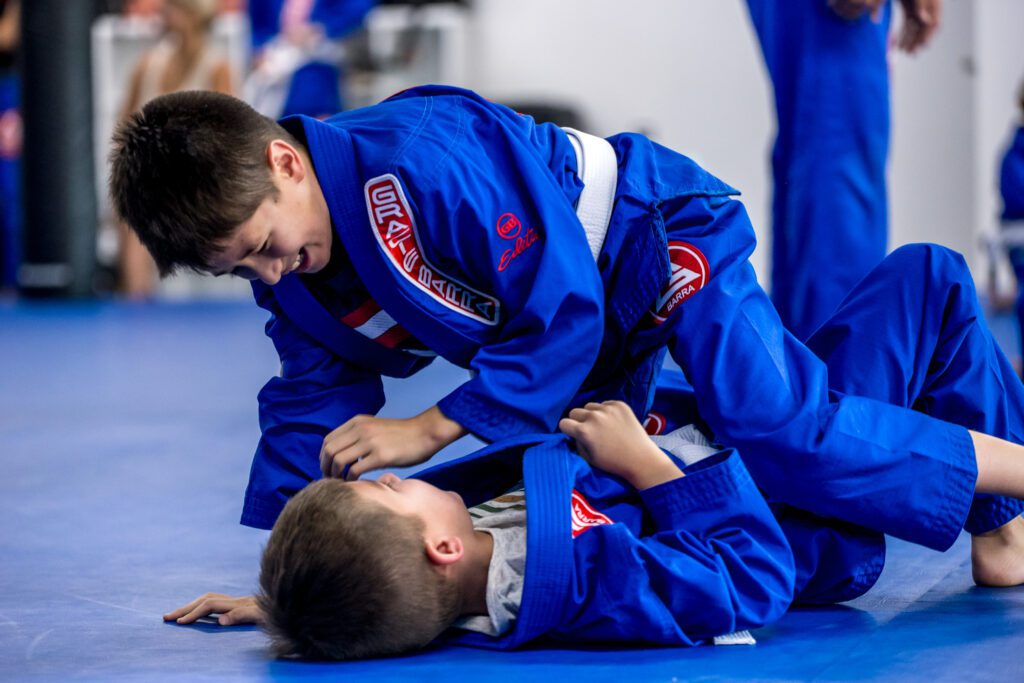
5. Strategies for Dealing with Multiple Opponents
Jiu-jitsu offers specific strategies for dealing with multiple opponents. These self-defense techniques consider scenarios in which the presence of more than one aggressor is a reality, preparing practitioners for different situations.
6. Developing Observation Skills
Constant training in jiu-jitsu improves observation skills. This attention to detail is valuable in self-defense, allowing practitioners to identify signs of danger and act proactively to protect themselves.
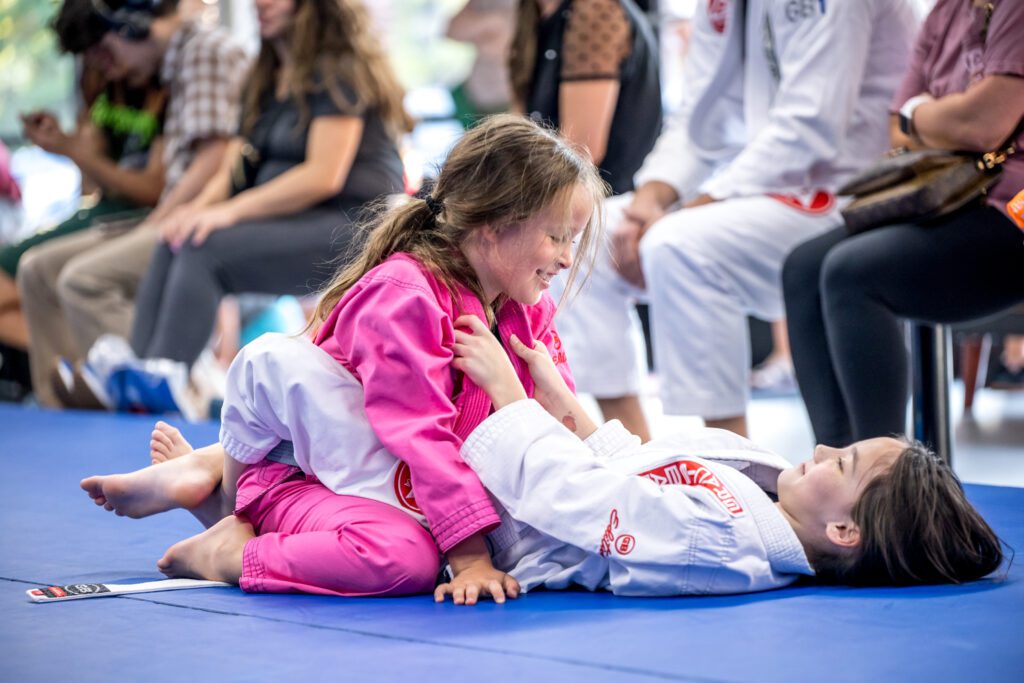
7. Appropriate Distance Learning
The ability to control distance is crucial in self-defense. Jiu-jitsu teaches practitioners to maintain a safe distance, allowing them to avoid potential threats or, when necessary, close the distance to neutralize aggression.
8. Efficient Use of Energy
Efficiency is a fundamental characteristic of jiu-jitsu. By learning to utilize energy efficiently, practitioners are able to face stronger opponents while maintaining stamina and responsiveness during a prolonged self-defense situation.
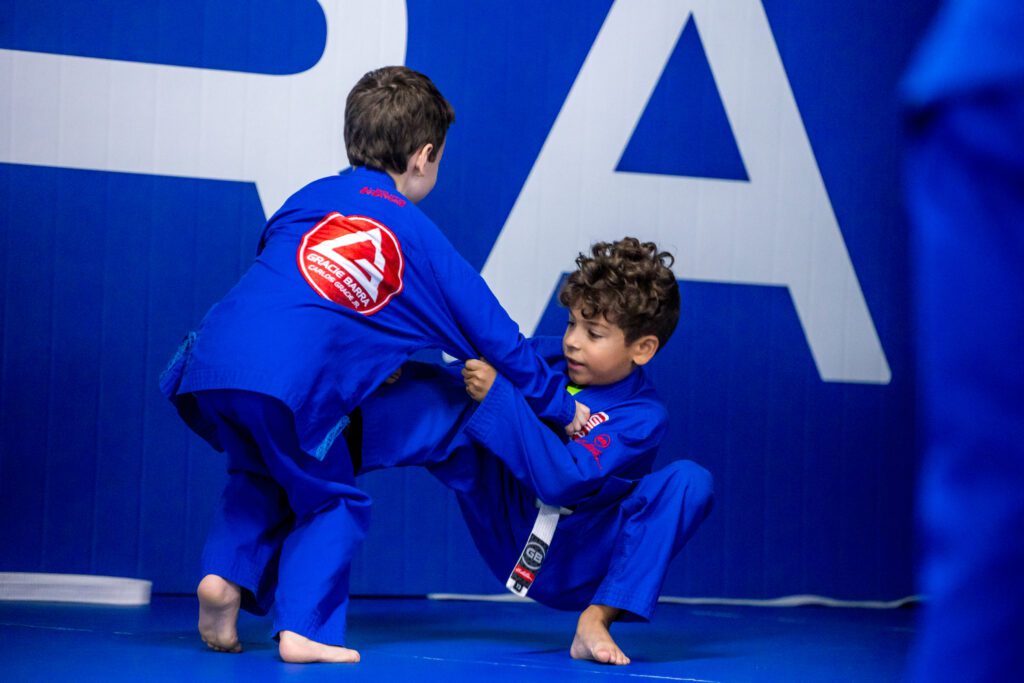
9. Psychology of Self-Defense
Jiu-jitsu addresses the psychology of self-defense, preparing practitioners mentally to face challenging situations. Emotional control and quick decision-making are essential aspects taught during training.
10. Prevention and Awareness
Jiu-jitsu includes prevention components, teaching practitioners to recognize signs of danger and avoid potentially risky situations whenever possible. Awareness is a crucial tool in self-defense.
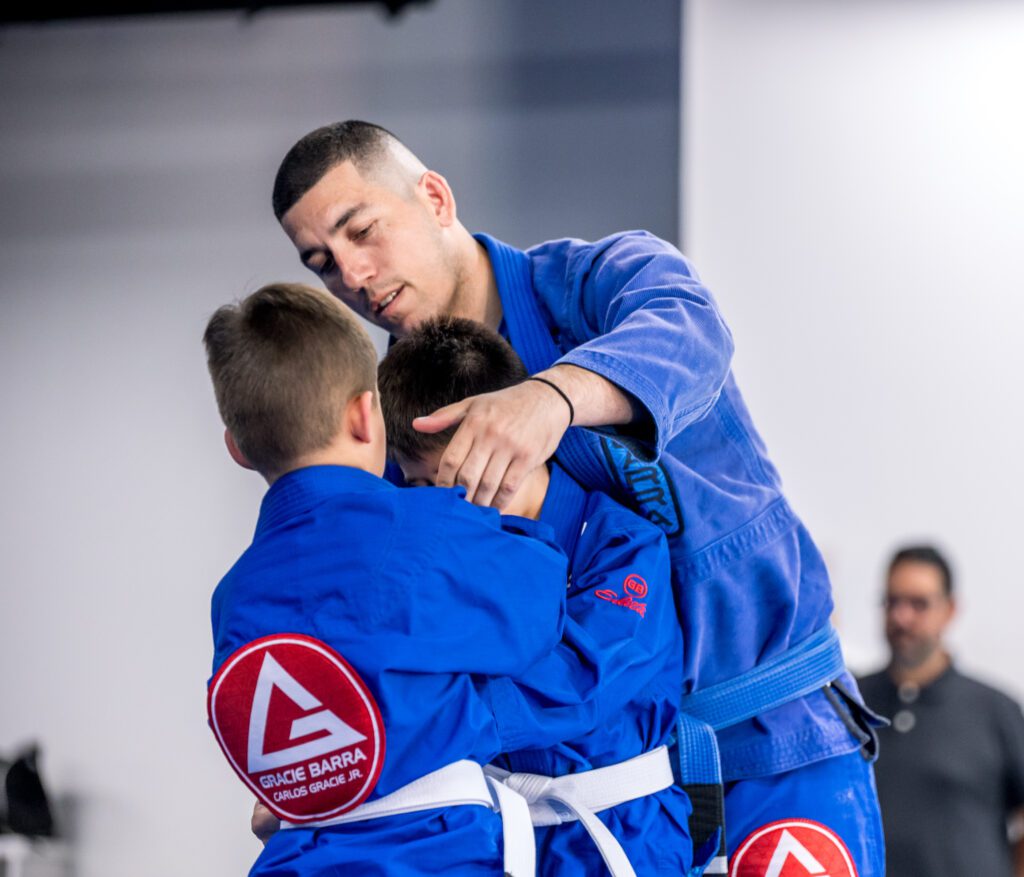
11. Proportional Use of Force
Jiu-jitsu ethics emphasize the proportional use of force. In self-defense, practitioners learn to apply the necessary amount of force to neutralize the threat, avoiding unnecessary injuries.
12. Continuous Training to Maintain Skills
Jiu-jitsu recognizes the importance of continuous training. Effective self-defense requires regular practice to maintain and improve learned skills, ensuring readiness to face unexpected challenges.
In short:
Jiu-Jitsu is a valuable tool for self-defense, providing not only technical skills but also a strategic and adaptive mindset. By focusing on control, restraint, and personal defense, practitioners are better prepared to deal with a variety of challenging situations that may arise in everyday life.

